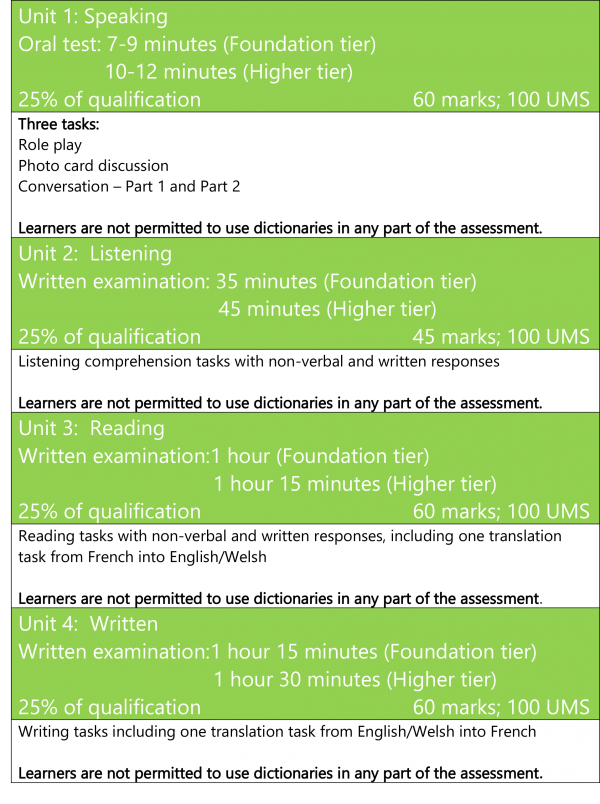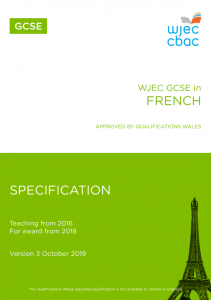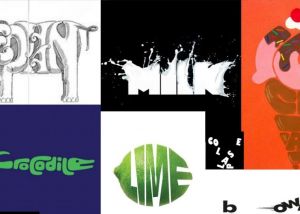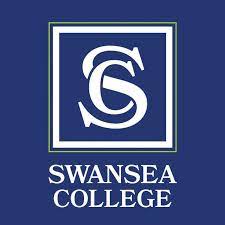Project Description
GCSE French Course
Exam board: WJEC
Exam code: 3800QS
France has an extensive network of cultural centres around the world that offer french language courses helping to make it one of the most widely spoken languages. It is one of the official languages used at the United Nations and European Union institutions as well as many other inter-governmental and non-governmental organisations worldwide. French companies operating across the world provide jobs in a wide range of fields including industry, media, sport and tourism, for example.
Learning French not only develops your communication and thinking skills it broadens your perspective and gives you the chance to explore a different culture. You will also find it easier to go on to learn other latin-based Romance Languages like Spanish, Italian and Portuguese. You will also increase your employability as there is always a demand for people who can speak more than one language across a very wide range of careers.
In this course, you will develop your knowledge of the French language and culture through studying three different themes:
Theme 1: Identity and culture;
Theme 2: Local, national, international and global areas of interest;
Theme 3: Current and future study and employment.
These themes are explored in the context of the four language skills – speaking, listening, reading and writing.
Curriculum
The specification we follow is the WJEC Syllabus.This linear qualification will be available in May/June each year.
This WJEC GCSE specification in French will enable learners to:
Listening: understand and respond to different types of spoken language
- demonstrate general and specific understanding of different types of spoken
language - follow and understand clear standard speech using familiar language across a
range of specified contexts - identify the overall message, key points, details and opinions in a variety of short and longer spoken passages, involving some more complex language,
recognising the relationship between past, present and future events - deduce meaning from a variety of short and longer spoken texts, involving some complex language and more abstract material, including short narratives and authentic material addressing a wide range of relevant contemporary and cultural themes
- recognise and respond to key information, important themes and ideas in more
extended spoken text, including authentic sources, adapted and abridged, as
appropriate, by being able to answer questions, extract information, evaluate and
draw conclusions.
Speaking: communicate and interact effectively in speech
- communicate and interact effectively in speech for a variety of purposes across a range of specified contexts
- take part in a short conversation, asking and answering questions, and
exchanging opinions - convey information and narrate events coherently and confidently, using and
adapting language for new purposes - speak spontaneously, responding to unexpected questions, points of view or
situations, sustaining communication by using rephrasing or repair strategies, as appropriate - initiate and develop conversations and discussion, producing extended sequences of speech
- make appropriate and accurate use of a variety of vocabulary and grammatical
structures, including some more complex forms, with reference to past, present
and future events - make creative and more complex use of the language, as appropriate, to express and justify their own thoughts and points of view
- use accurate pronunciation and intonation such as to be understood by a native
speaker
Reading: understand and respond to different types of written language
- understand and respond to different types of written language
- understand general and specific details within texts using high frequency familiar language across a range of contexts
- identify the overall message, key points, details and opinions in a variety of short and longer written passages, involving some more complex language,
recognising the relationship between past, present and future events - deduce meaning from a variety of short and longer written texts from a range of
specified contexts, including authentic sources involving some complex language
and unfamiliar material, as well as short narratives and authentic material
addressing a wide range of relevant contemporary and cultural themes - recognise and respond to key information, important themes and ideas in more
extended written text and authentic sources, including some extracts from
relevant abridged or adapted literary texts - demonstrate understanding by being able to scan for particular information,
organise and present relevant details, draw inferences in context and recognise implicit meaning where appropriate - translate a short passage from the assessed language into English / Welsh.
Writing: communicate in writing
- communicate effectively in writing for a variety of purposes across a range of
specified contexts - write short texts, using simple sentences and familiar language accurately to convey meaning and exchange information
- produce clear and coherent text of extended length to present facts and express
ideas and opinions appropriately for different purposes and in different settings - make accurate use of a variety of vocabulary and grammatical structures,
including some more complex forms, to describe and narrate with reference to past, present and future events - manipulate the language, using and adapting a variety of structures and
vocabulary with increasing accuracy and fluency for new purposes, including
using appropriate style and register - make independent, creative and more complex use of the language, as appropriate, to note down key points, express and justify individual thoughts and points of view, in order to interest, inform or convince
- translate sentences and short texts from English/ Welsh into the assessed
language to convey key messages accurately and to apply grammatical
knowledge of language and structures in context.
Assessment
This linear qualification will be available in May/June each year.
The GCSE French is assessed in four examinations.
Exam Access Arrangements
Exam access arrangements allow candidates/learners with special educational needs, disabilities or temporary injuries to access the assessment without changing the demands of the assessment.
For example, readers, scribes and Braille question papers. In this way, Awarding Bodies will comply with the duty of the Equality Act 2010 to make ‘reasonable adjustments’.
We can arrange exam access arrangements and assess you with our special assessor. The deadline for application to the exam board is the February of the year the learner sits exams.
To find out more about exam access arrangements click here
FAQs
SWANSEA COLLEGE GCSE COURSES
Have a question? Ask our virtual assistant on live chat below
or call us on 01792 535000 and speak to our experienced Student Adviser.






















